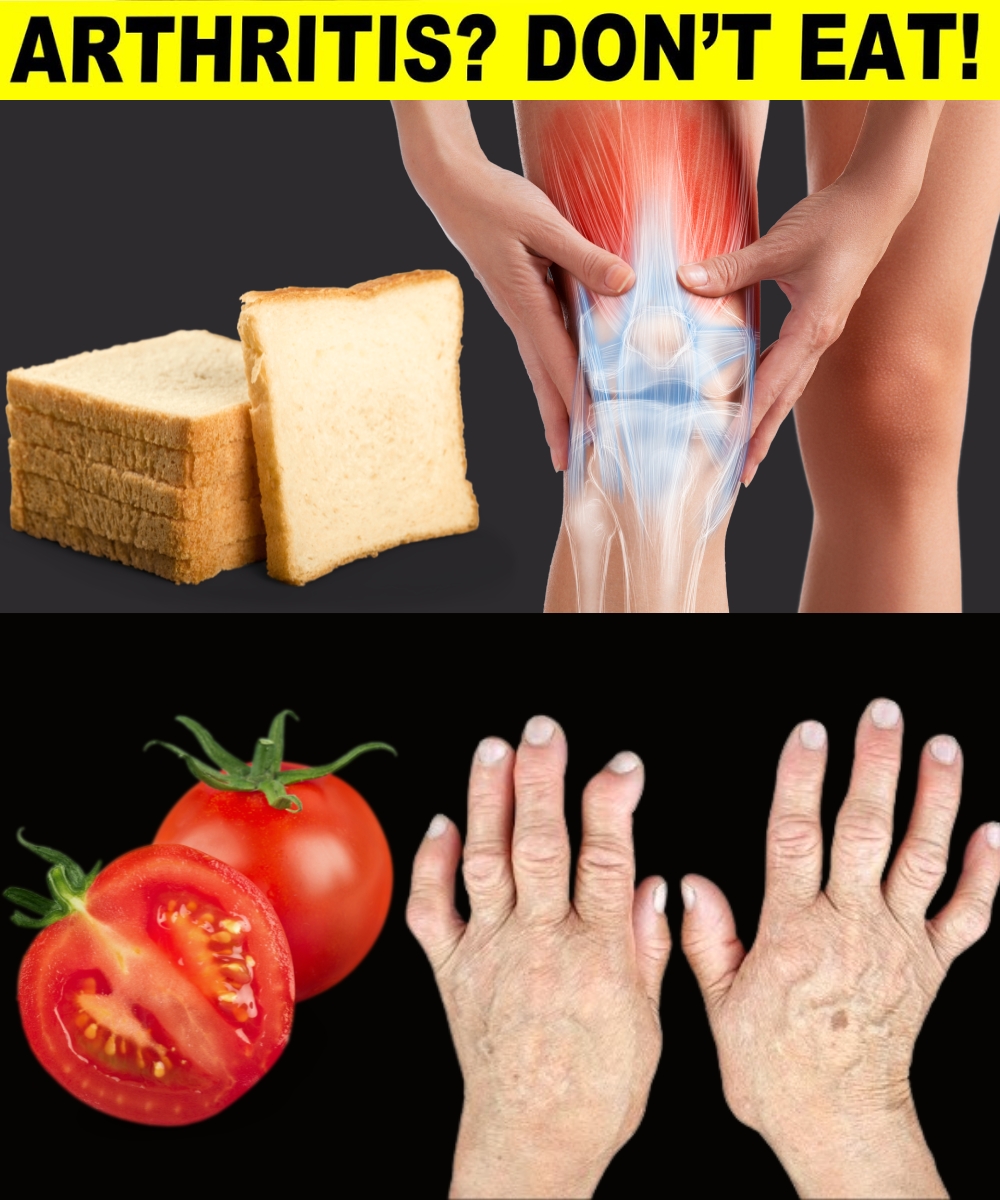ADVERTISEMENT
**9 Foods to Avoid If You Have Arthritis: A Comprehensive Guide**
Arthritis is a condition that affects millions of people around the world, causing inflammation, pain, stiffness, and swelling in the joints. While medications and physical therapy are commonly prescribed to manage arthritis symptoms, another crucial aspect of arthritis management is diet. The foods you eat can have a significant impact on your inflammation levels, pain intensity, and overall joint health.
Certain foods can exacerbate inflammation, which is a core feature of arthritis. This means that some foods might contribute to making your arthritis symptoms worse. On the other hand, there are also anti-inflammatory foods that can help reduce the effects of arthritis. By understanding which foods to avoid and which foods to embrace, you can create a diet that supports joint health, reduces inflammation, and helps you feel better overall.
In this article, we will explore **9 foods to avoid if you have arthritis**, how they affect inflammation, and some practical advice for making healthier dietary choices to manage arthritis symptoms.
—
### **Understanding Arthritis and Inflammation**
Before delving into the specific foods to avoid, it’s important to understand the relationship between arthritis and inflammation.
**Arthritis** refers to the inflammation of one or more joints, which can cause pain, swelling, and stiffness. There are many types of arthritis, but the most common forms are **rheumatoid arthritis (RA)** and **osteoarthritis (OA)**. Both types of arthritis involve inflammation of the joints, though their causes and mechanisms differ.
In rheumatoid arthritis, the body’s immune system mistakenly attacks the synovium (the lining of the joints), leading to chronic inflammation. In osteoarthritis, the cartilage in the joints breaks down over time, causing bones to rub together, leading to pain, swelling, and stiffness.
**Inflammation** plays a central role in arthritis. It is the body’s natural response to injury or infection, but when it becomes chronic, it can damage healthy tissues and contribute to pain. This is why managing inflammation through diet and lifestyle changes is so important for those with arthritis.
—
### **The Impact of Diet on Arthritis**
Diet can either contribute to or alleviate inflammation. **Pro-inflammatory foods** are those that can increase inflammation in the body, potentially worsening arthritis symptoms. **Anti-inflammatory foods**, on the other hand, can help reduce inflammation and may help manage arthritis symptoms better.
The goal in managing arthritis through diet is to limit or avoid foods that trigger inflammation and to incorporate foods that promote joint health and reduce inflammation.
—
### **9 Foods to Avoid if You Have Arthritis**
Certain foods have been shown to contribute to the production of pro-inflammatory compounds in the body. These compounds can increase inflammation and exacerbate arthritis symptoms. Here are **nine foods to avoid if you have arthritis**:
#### **1. Processed and Red Meats**
Processed meats, such as bacon, sausages, hot dogs, and deli meats, as well as red meats like beef and lamb, are known to promote inflammation. These meats are high in saturated fats and can lead to increased production of inflammatory markers in the body. Studies have shown that the high-fat content in processed and red meats can exacerbate symptoms of arthritis, particularly in people with rheumatoid arthritis.
In addition, many processed meats contain preservatives like nitrates and nitrites, which have been linked to increased inflammation. For people with arthritis, it is important to reduce the intake of these meats in favor of lean protein sources such as fish, poultry, and plant-based options.
**Alternatives:** Choose lean cuts of meat (such as chicken or turkey), fish rich in omega-3 fatty acids (like salmon, sardines, and mackerel), or plant-based proteins like beans, legumes, and tofu.
#### **2. Fried Foods**
Fried foods are a major contributor to inflammation. The process of deep-frying food results in the formation of unhealthy trans fats, which are known to promote inflammation in the body. Trans fats are harmful fats that can increase levels of LDL (low-density lipoprotein) cholesterol, also known as “bad” cholesterol, and trigger inflammatory responses.
Fried foods such as French fries, fried chicken, doughnuts, and other deep-fried snacks should be limited or avoided. The oils used for frying—especially vegetable oils—are high in omega-6 fatty acids, which, when consumed in excess, can promote inflammation in the body.
**Alternatives:** Opt for healthier cooking methods such as baking, grilling, steaming, or sautéing with healthy fats like olive oil or avocado oil.
#### **3. Refined Carbohydrates and Sugary Foods**
Refined carbohydrates, including white bread, pastries, and sugary snacks, can cause a spike in blood sugar levels, leading to an increase in the production of advanced glycation end products (AGEs). AGEs are compounds that promote inflammation and are linked to various chronic diseases, including arthritis.
High-sugar foods like candies, sodas, cakes, and sugary beverages can also increase inflammation and exacerbate arthritis symptoms. A diet high in sugar can contribute to weight gain, which places additional strain on the joints, making arthritis symptoms worse.
**Alternatives:** Choose whole grains such as brown rice, quinoa, and whole-wheat bread. For a sweet treat, opt for fruit or natural sweeteners like honey or maple syrup in moderation.
For Complete Cooking STEPS Please Head On Over To Next Page Or Open button (>) and don’t forget to SHARE with your Facebook friends
